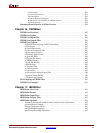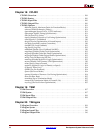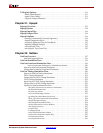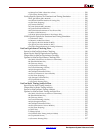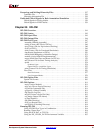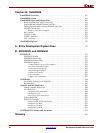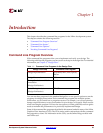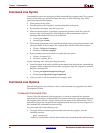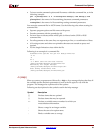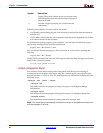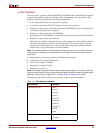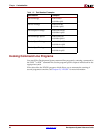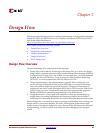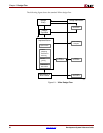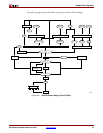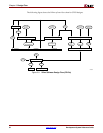
Development System Reference Guide www.xilinx.com 25
Command Line Options
R
• To insert certain command options and file names within the command line, as in the
following example:
par -f placeoptions -s 4 -f routeoptions design_i.ncd design_o.ncd
placeoptions is the name of a file containing placement command parameters.
routeoptions is the name of a file containing routing command parameters.
You create the command file in ASCII format. Use the following rules when creating the
command file:
• Separate program options and file names with spaces.
• Precede comments with the pound sign (#).
• Put new lines or tabs anywhere white space is allowed on the UNIX or DOS
command line.
• Put all arguments on the same line, one argument per line, or a combination of these.
• All carriage returns and other non-printable characters are treated as spaces and
ignored.
• No line length limitation exists within the file.
Following is an example of a command file:
#command line options for par for design mine.ncd
-n 10
-w
0l 5
-s 2 #will save the two best results
/home/yourname/designs/xilinx/mine.ncd
#directory for output designs
/home/yourname/designs/xilinx/output.dir
#use timing constraints file
/home/yourname/designs/xilinx/mine.pcf
–h (Help)
When you enter a program name followed by –help or –h, a message displays that lists all
the available options and their parameters as well as the file types for use with the
program. The message also explains each of the options.
Following are descriptions for the symbols used in the help message:
Symbol Description
[ ] Encloses items that are optional.
{ } Encloses items that may be repeated.
< > Encloses a variable name or number for which you
must substitute information.
, Shows a range for an integer variable.
– Shows the start of an option name.
: Binds a variable name to a range.



